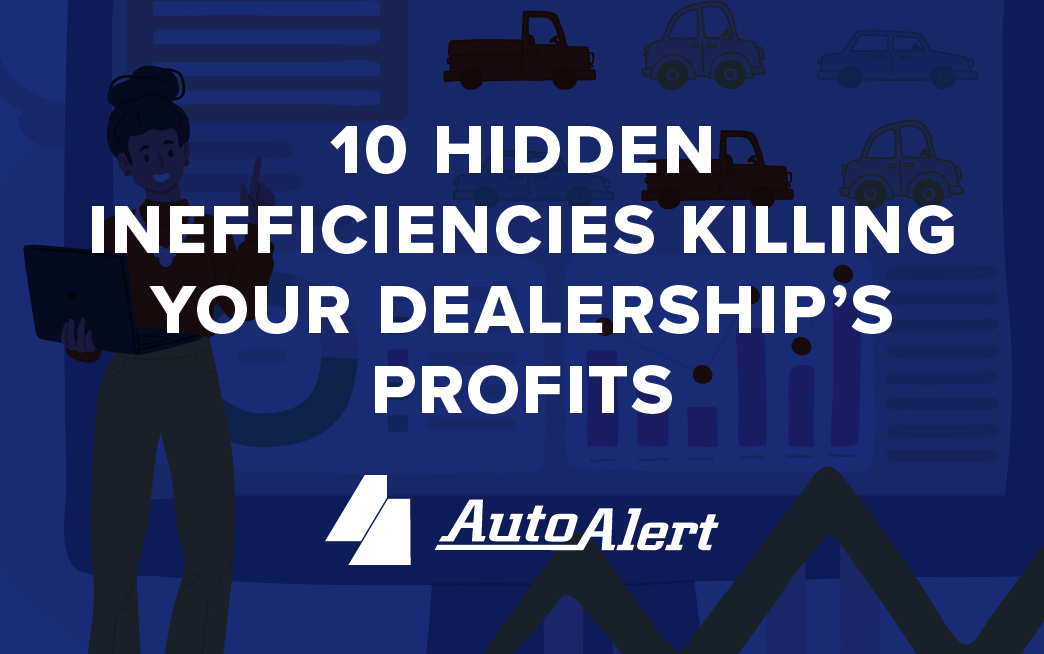What is the Role of a CRM in the Automotive Industry?
Customer Relationship Management (CRM) tools play a crucial role in the automotive industry, facilitating various aspects of customer interactions, internet leads, sales, and service. A CRM in the automotive industry has the potential to revolutionize customer relations and sales strategies in the automotive space, offering a wide range of benefits for dealerships.
Dealership CRM systems help collect, organize, and manage customer data effectively. This includes contact information, purchase history, behavior tracking, service records, preferences, and other relevant information. This centralized database enables dealerships to comprehensively understand their customers, allowing for more personalized interactions.
With so much information available so quickly online, buyers have a new perspective and advantage. All the information they want is right at their fingertips. This gives sellers an opportunity to stand out to their customers, better meet their needs, and build stronger relationships.


CRMs are great for what they were designed for, but they’re not enough in today’s increasingly competitive markets. These days, customers expect a seamless, personalized, and truly useful customer experience when purchasing a vehicle. Consumer data beyond the transactional must be gathered, stored, analyzed, and, most importantly, made into actionable insights through task automation. CRMs need to follow through in dynamic and intelligent ways and accurately predict customer wants and behaviors in real-time!
The current expectation potential for the modern CRM tool is to leverage data and predict in-market customer needs based on their behaviors. How is your CRM adapting and making your dealership more productive as consumer behaviors and technology evolve?
What to Do with All That Data?


Automotive CRM tools allow dealerships’ sales and service departments to store and manage customer data in a centralized system. This includes contact information, vehicle preferences, purchase history, and service records. All this information readily accessible enables sales and service teams to personalize their interactions with customers, improving customer satisfaction and loyalty.
Discovering the best uses for data is a challenge. That’s partly because data goes unanalyzed and siloed. Typical CRM actions are system-driven with no flexibility to adjust customer feedback data.
AutoAlert’s car dealership CRM, AutoAlert CXM – the next-gen automotive CRM software, eliminates data roadblocks by securely collecting data from myriad sources and bringing it all into one place for analysis every day. This allows the user to get a complete picture of each customer and deliver the best opportunities.
AutoAlert CXM is like an ultimate CRM. CRMs are essentially a well-organized set of historical customer records. AutoAlert CXM includes this valuable data along with more actively gathered customer information as part of a bigger, dynamic, proactive, real-time guidance of the customer journey.
You might think you have the right data in your current CRM, but if your data doesn’t dynamically update based on customer behavior, your dealership won’t be responsive to customers’ behaviors in real time.
How Does Your CRM Handle a Lead?
CRM systems can provide tools for lead management and prospect tracking and help dealerships manage leads throughout the sales funnel. Sales representatives can use CRM software to track interactions with potential customers, schedule follow-ups, and prioritize leads based on their likelihood to convert.
However, traditional CRM solutions often have basic lead monitoring with inefficient follow-up. Most leads are sent a mass email or sometimes get a phone call. Leads stack up, overwhelming your teams and leaving your dealership with lost leads and sales opportunities.


A dynamic sales CRM tool can track and prioritize leads, assign tasks to sales representatives, and automate follow-up communications from initial inquiries to purchases. This ensures that no potential sales opportunity falls through the cracks and helps sales teams focus on the most promising leads.
So, how do you work the lead to make better decisions to drive more business?
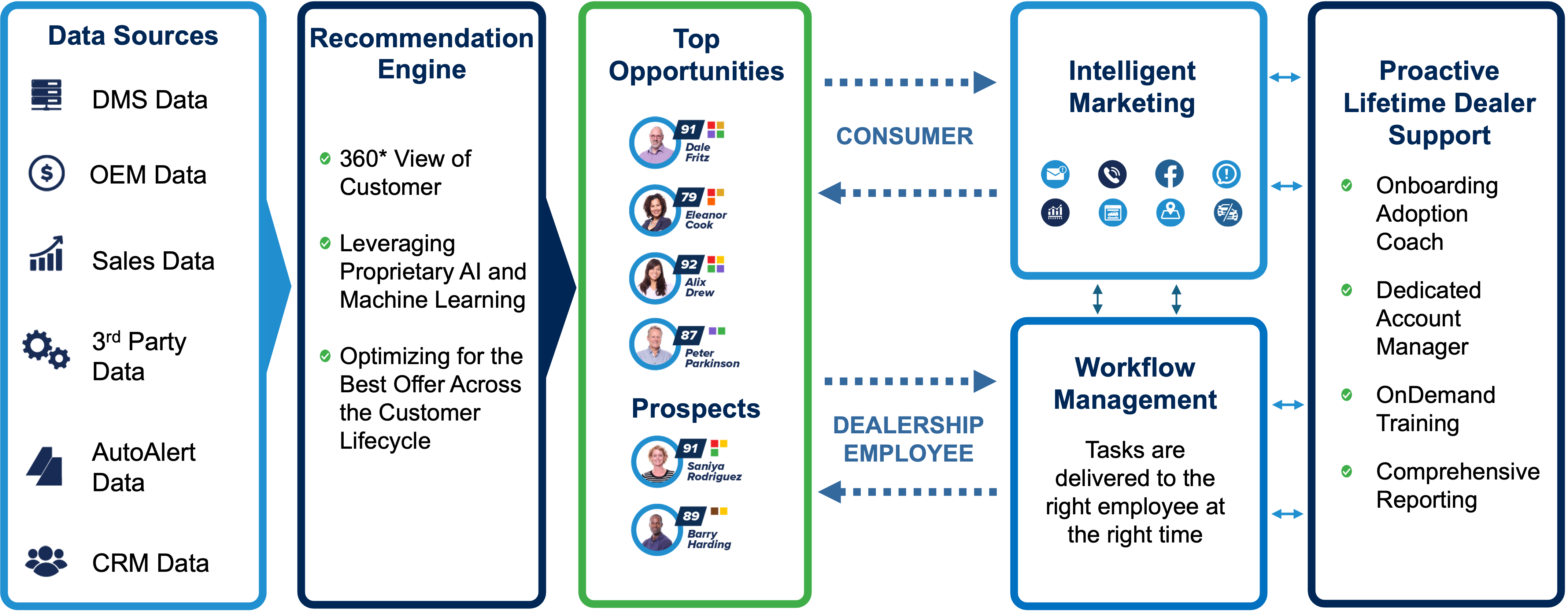

AutoAlert CXM’s patented data analytics informs dealers when customers (including service lane conquests) are in the ideal position to trade keys and provides customer-centric communications for increased engagement and loyalty. You can view many lead buckets on one dashboard, such as customers in-market, trade situations, or showroom appointments. Your dealership team gets alerted to the calls they need to make, if a customer has responded to an email, and actions that have been triggered.
It seamlessly creates leads and follows up, giving you the power to move customers forward in the buying cycle, improving sales efficiency while maximizing conversion rates.
READY TO SEE HOW AUTOALERT’s CRM CAN HELP YOUR DEALERSHIP?
Does Your CRM Build a Work Plan for Your Team?
Traditional CRMs require your team to manually set up processes with minimal workflow options. This means added work and time for the dealership.
On the other hand, modern CRMs automate processes to assign tasks that dynamically update based on customer and employee behavior. These workflows synchronize dealership operations to deliver a seamless customer experience at every touchpoint of the sales process.
Advanced CRM tools can help streamline inventory management processes for dealerships with large inventories. Sales representatives can quickly access information about available vehicles, pricing, and specifications, enabling them to match customers with the right vehicles more efficiently. You can also receive insights into inventory turnover rates and popular models, helping dealerships make data-driven decisions about their stock.
Does Your CRM Help with Dealership Communications and Customer Journey?
Traditional CRMs facilitate communication between your dealership and your customers. However, if your CRM is integrated with only some dealership tools, this creates siloed information. Siloed information produces confusing customer messaging, leading to low response rates, lost sales opportunities, and a poor customer experience.
A CRM platform that integrates with other software systems commonly used in the automotive industry, such as inventory management software, reputation and review services, and marketing automation tools, provides a seamless integration. Streamlining data sharing eliminates the need for manual data entry, saving time and reducing the risk of errors.
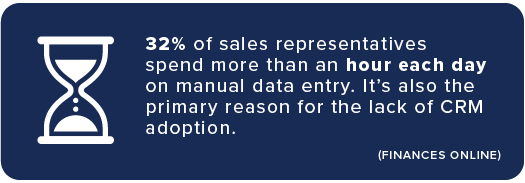

AutoAlert CXM offers dealerships the single solution they need to synchronize dealership communications for a personalized, seamless customer journey from test drive to collecting signatures, both online and in-store, on one screen and on any device. It is also fully integrated with AutoAlert’s industry-leading data mining solution, AlertMiner.
Is Your Customer Service Up to Snuff?
CRM systems play a crucial role in providing exceptional customer service and support. Leading CRM tools offer advanced analytics that facilitate better customer service by providing a holistic view of each customer's interaction history.
Modern CRM systems, like AutoAlert CXM, can integrate with customer support channels such as email, phone, and chat, allowing for efficient resolution of customer inquiries and issues.
Service departments can use CRM software to manage service appointments, access information about past purchases, track vehicle repairs, and maintain and improve customer engagement and communication.
They can also automate service reminders and appointment scheduling, making it easier for customers to stay on top of their vehicle maintenance needs.
Dealerships can actively gain greater insight into predicting what consumers want and delivering relevant offers. This makes customers feel heard and seen and more inclined to continue doing business with your dealership. AutoAlert CXM has the tools and integrations dealerships need to provide the best possible customer experience in real time and develop loyal, repeat customers.
Is Your Marketing Effective with Your Current CRM?
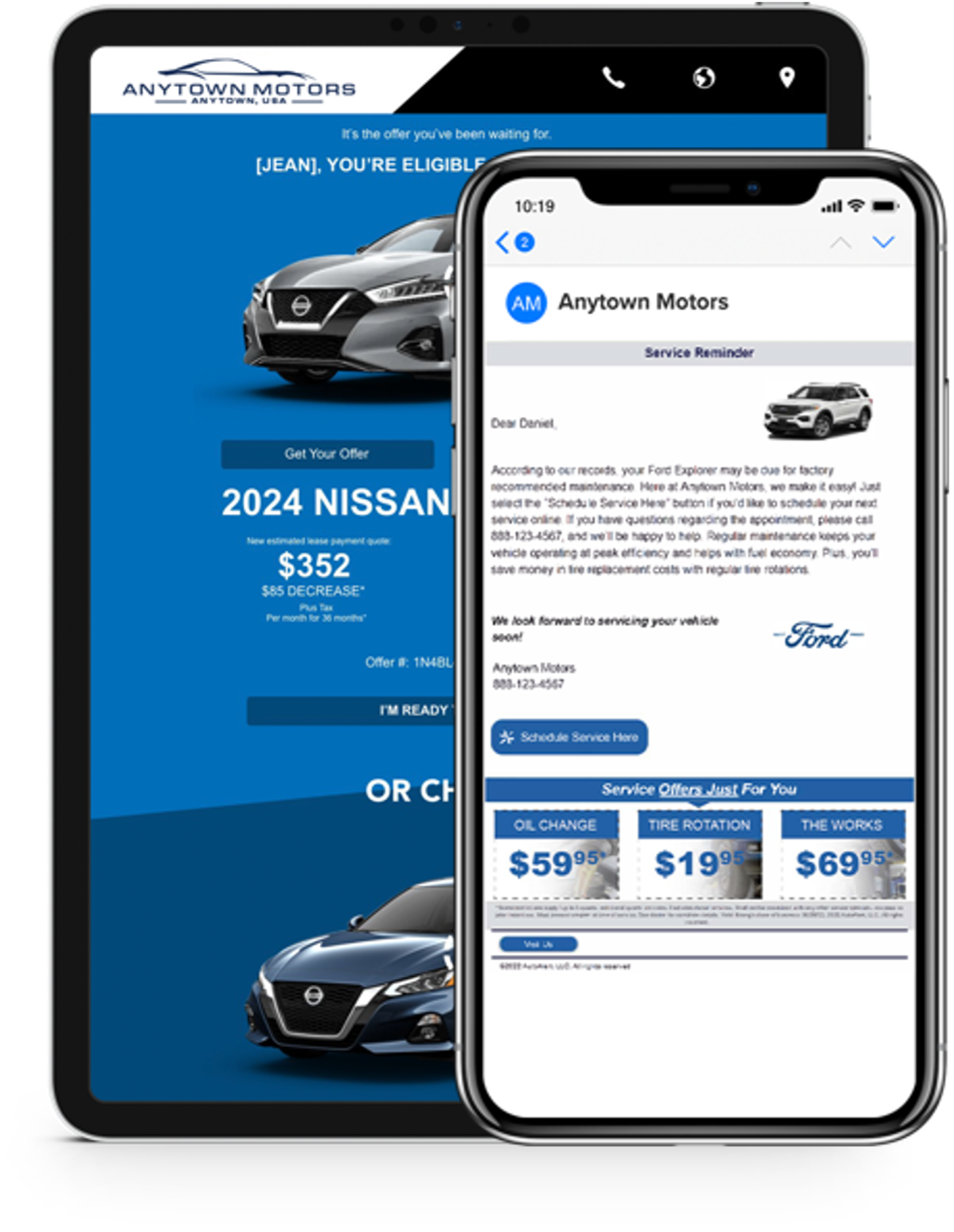

CRM systems enable dealerships to create targeted marketing campaigns tailored to specific customer segments based on demographics, buying behavior, and preferences. By analyzing customer data stored in the CRM database, dealerships can create personalized marketing messages and offer deals tailored to specific needs.
Whether it's sending promotional offers to customers due for a vehicle upgrade or personalized service reminders based on maintenance schedules, CRM tools enable dealerships to deliver relevant and timely communications that resonate with customers.
This targeted approach improves the effectiveness of marketing efforts and enhances customer engagement.
Marketing using data-mining and behavior-predicting software tools, like AutoAlert CXM, allows your dealership to communicate timely, personalized offers to consumers in the ways they prefer to be reached. This translates to a much easier and much more enjoyable personalized buying experience for them.
How Can You Know Where to Improve Without Reporting?
By analyzing their data, dealerships can identify trends, pinpoint areas for improvement, and optimize their sales and marketing strategies accordingly.
CRM systems provide valuable insights through analytics and reporting functionalities. Automotive companies can analyze sales performance, customer trends, and campaign effectiveness using data collected in the CRM database.
This data-driven approach helps to identify areas for improvement, optimize marketing and sales strategies, and make informed business decisions.
AutoAlert CXM predicts customer behaviors, manages your dealership’s interactions, and enhances the customer experience with dynamic technology.
What is Your CRM Takeaway?
Overall, automotive CRM tools have become indispensable for modern automotive dealerships, enabling them to build stronger customer relationships, streamline sales and service processes, and drive business growth. But increasingly, customers want the companies they do business with to know them and provide stellar, seamless experiences.
Traditional CRMs were great for their intended purpose, but that technology has been improved, added to, and integrated to create a platform that truly considers all aspects of the dealership, employees, and customers.
Data analysis is crucial, personalization is crucial, and timely communication is crucial. While they are great at many things, CRMs’ time-based follow-up approach simply won’t cut it.
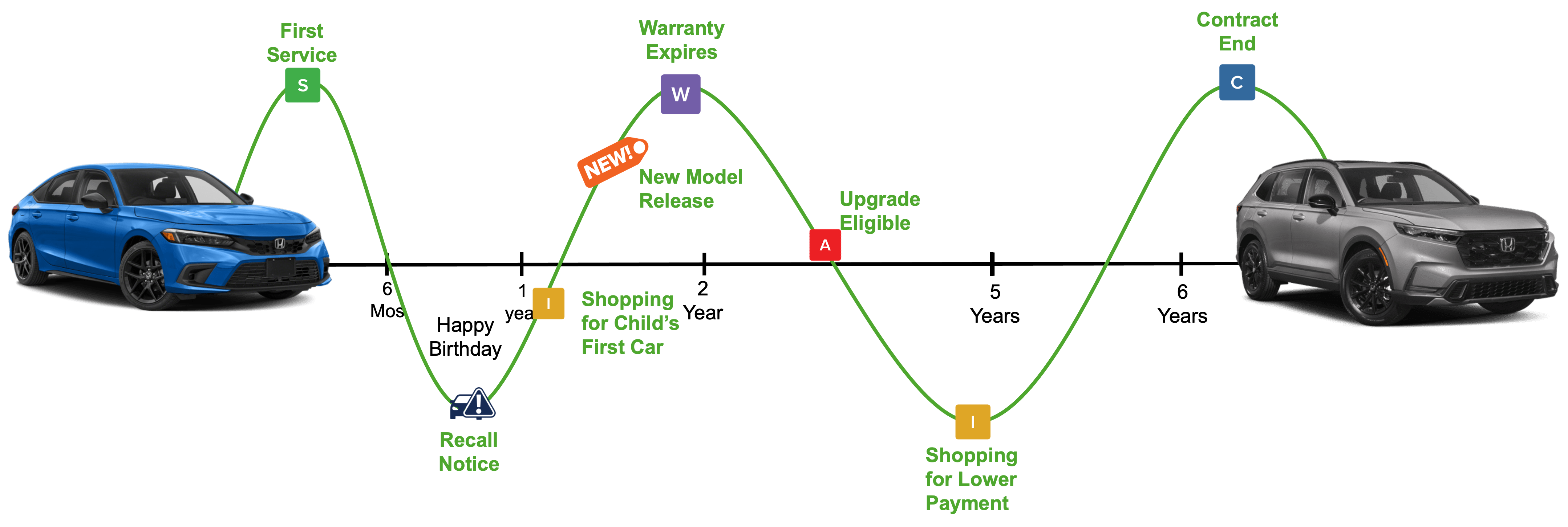

By leveraging the benefits of a modern CRM in the automotive industry, dealerships can stay competitive and deliver exceptional customer experiences.
Make sure your dealership is up to speed and operating at maximum capacity.


